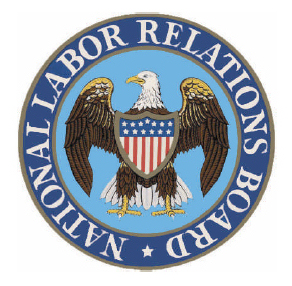By Julia Di Vito
 On July 1, 2016, the National Labor Relations Board (“NLRB”) announced that it will ask employers that receive unfair labor practice complaints to report information that would identify them as government contractors. Anne Purcell, Associate General Counsel of the NLRB, issued Memorandum OM 16-23 to the NLRB’s regional offices directing the NLRB to collect additional data points regarding employers charged with unfair labor practices. This new practice is in furtherance of the 2014 Fair Pay and Safe Workplaces Executive Order designed to ensure that federal government contractors comply with labor laws. Among other things, this Executive Order directed federal agencies to designate a senior agency official to serve as the Labor Compliance Advisor to help ensure the agency does not contract with violators of labor laws.
On July 1, 2016, the National Labor Relations Board (“NLRB”) announced that it will ask employers that receive unfair labor practice complaints to report information that would identify them as government contractors. Anne Purcell, Associate General Counsel of the NLRB, issued Memorandum OM 16-23 to the NLRB’s regional offices directing the NLRB to collect additional data points regarding employers charged with unfair labor practices. This new practice is in furtherance of the 2014 Fair Pay and Safe Workplaces Executive Order designed to ensure that federal government contractors comply with labor laws. Among other things, this Executive Order directed federal agencies to designate a senior agency official to serve as the Labor Compliance Advisor to help ensure the agency does not contract with violators of labor laws.
Beginning with unfair labor practice complaints issued on or after July 1, 2016, the NLRB will collect these four data points from charged employers:
- Is the charged party employer a federal contractor now or in the past? If so, its Commercial And Government Entity (“CAGE”) number;
- The charged party employer’s Data Universal Numbers System (“DUNS”) number, if it has one;
- The charged party employer’s four-character DUNS number suffix (DUNS+4), if it has one:
- The charged party employer’s Employer Identification Number (EIN) or Taxpayer Identification Number (TIN).
The information collected will be provided to a database accessed by the various agencies’ Labor Compliance Advisors – but only if the NLRB Regional Director issues a complaint in the matter. Notably, if an employer reaches a resolution of the issue before the Regional Director issues a complaint (i.e., entering into a settlement agreement with the Regional Director), no information will be provided to the database.
Along with the July 1, 2016 Memorandum, the NLRB provided its regional offices with a sample email to be sent to charged employers regarding the collection of this additional data. This email would inform employers that if the employer does not provide the requested information to the NLRB, it will transmit the information that it does have about the case to the Labor Compliance Advisor database, along with the fact that the employer was requested to provide additional information and did not do so. This email would caution employers that “[t]his information may be considered by the Labor Compliance Advisors in assessing whether the charged party employer will be eligible to contract with the federal government.”
About the Author: Julia Di Vito practices in the areas of government contracts, litigation, employment, and labor. She may be reached at jdivito@pilieromazza.com.


